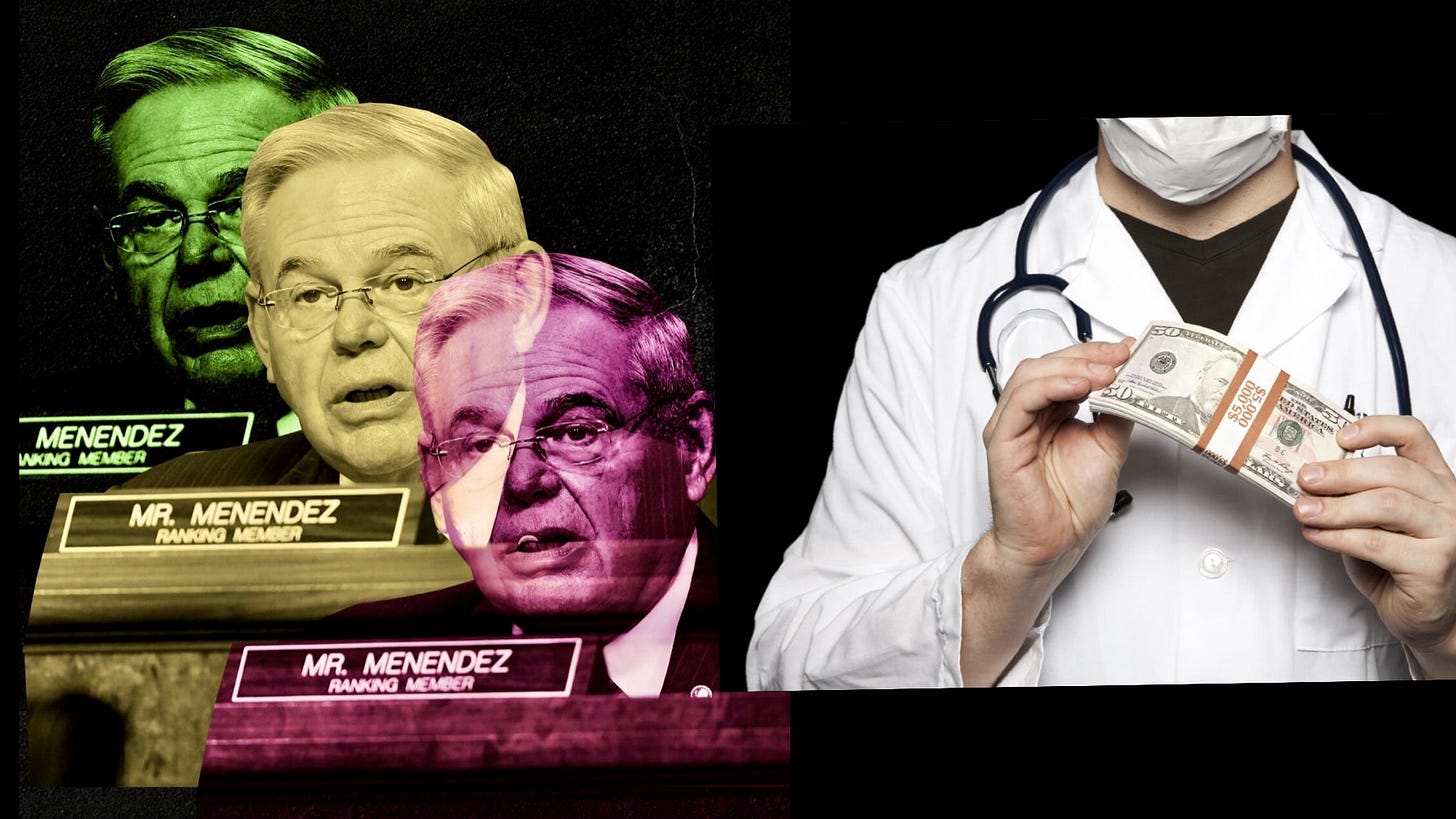Big Pharma's Man in the Senate
Drug CEOs privately fret that Senator Bob Menendez will be forced to resign
A defiant Senator Bob Menendez is refusing calls that he resign in the wake of a sweeping federal bribery indictment. Menendez is clinging stubbornly to the Senate seat he has had since 2006. In refusing to step down, he mentioned how he survived a 2015 federal indictment that charged he helped a friend in exchange for six-figure contributions, luxe hotel stays and private jet trips. Federal prosecutors dropped the case against him after a jury deadlocked at trial.
There is one group of business executives who privately hope that Menendez manages to pull it off once again: pharmaceutical CEOs. Although Big Pharma has a number of allies in the House and Senate, Menendez is by far the industry’s most loyal and reliable vote.
New Jersey is home to the headquarters of 14 of the top 20 drug firms. Pharma employs about 300,000 New Jerseyians and brings over $84 billion into the state. Menendez has gotten $1.5 million from drug firms over his career (a fraction of the $9 million to Biden, t…




